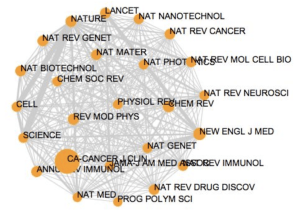Open Science & Scholarship Award Winners 2025!
By Kirsty, on 6 October 2025
The UCL Open Science and Scholarship Awards are a joint programme between the UCL Office for Open Science and Scholarship (OOSS) and the local network chapter of UKRN, the UK Reproducibility Network. Together we are delighted to be running these awards for the third year and are proud to say that the quality and volume of applications has only continued to grow year on year.
 We would like to invite you to join us in celebrating our award winners during the Open Access Week festivities. At the awards presentation on Wednesday 22 October we will be presenting all of the awards as well as hearing from a selection of winners and honourable mentions about their research. There will also be the opportunity to network with our winners at a reception sponsored by UCL Press.
We would like to invite you to join us in celebrating our award winners during the Open Access Week festivities. At the awards presentation on Wednesday 22 October we will be presenting all of the awards as well as hearing from a selection of winners and honourable mentions about their research. There will also be the opportunity to network with our winners at a reception sponsored by UCL Press.
And without further ado – our award winners! Each category has an overall winner and two honourable mentions.
Category – Activities led by non-academic staff
- Winner: Vassilis Sideropoulos, Senior Research Technical Professional, Department of Psychology and Human Development, IOE — Leading the IOE Open Research Practice Community and an open research training programme
- Honourable Mention: Nikoloz Sirmpilatze, Research Software Engineer, Sainsbury Wellcome Centre, Faculty of Life Sciences — Technical lead of ‘movement’, an open-source Python package for analysing animal body movements
- Honourable Mention: Samarth Pimparkar, Research Technician, Clinical and Movement Neuroscience, Faculty of Brain Science — Contributions to building open-source resources that preserve and share valuable patient-derived material
Category – Activities led by undergraduate or postgraduate students:
- Winner: Yinan Chen; Eric Chen; Adelina Xie undergraduate students at the Department of Statistical Science, Faculty of Mathematical and Physical Sciences — Developers of open peer-review system for statistical science undergraduate coding assignments
- Honourable Mention: Chaeyeon Lim, MSc student at the UCL Interaction Centre, Faculty of Life Sciences — Lead-developer of NatureNest
- Honourable Mention: Ka Ying Ivy Chan, MSc student at the Faculty of Brain Sciences — Introducing the OSF to fellow master’s students
Category – Activities by academic staff (including post-docs) or PhD students: Open-source software/analytical tools
- Winner: Deyu Ming, Lecturer in Mathematics and Data Analytics, School of Management, Faculty of Engineering — Lead developer of ‘DGPSI’
- Honourable Mention: Michal Ovadek, Lecturer in European Institutions, Politics and Policy, Department of Political Science, Faculty of Social and Historical Sciences — Lead developer of ‘eurlex’
- Honourable Mention: Pietro Lubello, Research Fellow, Energy Institute, Bartlett Faculty of the Built Environment — Lead developer of the Kenya Power System Model and the Kenya Whole Energy System Model
Category – Activities led by academic staff (including post-docs) or PhD students: Open publishing
- Winner: Adam Crymble, Lecturer of Digital Humanities, Department of Information Studies, Faculty of Arts and Humanities — Co-founder and first chair of Programming Historian
- Honourable Mention: Anastasia Kokori, PhD student in the Astrophysics Group, Department of Physics and Astronomy, Faculty of Mathematical & Physical Sciences — Founder and coordinator of ExoClock
- Honourable Mention: Annabelle South, Principal Research Fellow in Research Impact and Communication, MRC Clinical Trials Unit, Faculty of Population Health Sciences — Innovating how results of clinical trials are shared with participants
Category – Activities by academic staff (including post-docs) or PhD students: Enhancing open science and reproducibility capacity in the academic community
- Winner: Martin Mokros, Lecturer in Earth Observation, Department of Geography, Faculty of Social and Historical Sciences — Chair of the COST Action 3DForEcoTech
- Honourable Mention: Dongyi Ma, PhD student in the Connected Environments Lab, Bartlett Faculty of the Built Environment — Founder of UrbanHeatSense IoT initiative
- Honourable Mention: Lewis Jones, NERC Independent Research Fellow, Department of Earth Sciences, Faculty Mathematical & Physical Sciences— Founder of the Palaeoverse
The UCL Office for Open Science and Scholarship invites you to contribute to the open science and scholarship movement. Stay connected for updates, events, and opportunities.
Follow us on Bluesky, LinkedIn, and join our mailing list to be part of the conversation!
 Close
Close

















